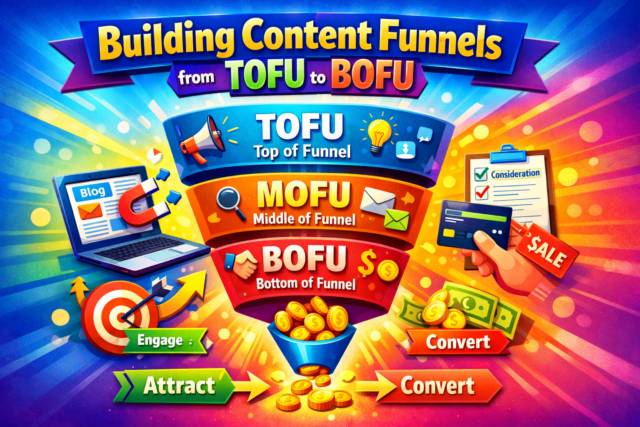Here are 14 things that can badly hurt your site’s SEO rankings. Read this blog to prevent your website from these shortcomings.
SEO can reduce the cost of customer acquisition by 87.41% on average compared to digital advertising.
When web admin discovers a sudden dip in their SEO ranks and all their hard work is lost, it is their greatest fear! Are you among them? Well, breathe deeply! There are others besides you. Every website has seen or will experience a decline in ranks. Although you can’t prevent it, you can surely lessen its effects. A dip in classes may occur for several reasons. This page explains both the apparent and less obvious ones. The following 14 factors might lower the rating of your website:
-
We are building many low-quality links to your website.
A low-quality link is any link built or acquired to manipulate PageRank and significantly influence a site’s position in the search results. Links from spam comments, low-quality guest posts, low-quality article directories, and low-quality web directories are low-quality links. Here is a comprehensive list of link strategies that Google considers unnatural. Look under Search Console for site messages. Many artificial links to your website increase the likelihood that Google may personally contact you and ask you to remove such connections. It does not necessarily indicate that you are in the clear if Google has not sent you any direct messages.
Additionally, you may examine each link and eliminate all the unnatural connections from the list based on Google’s link schemes.
-
Poor Redirects on Your Website
When a visitor accesses one URL but is sent to another, this is known as a redirect. Take into account the possibility that you have a website page with the URL www.example.com/mens-shoes that appears on Google’s first page. Due to specific design modifications on the website, the developer modifies the URL to go to www.example.com’s main page. Each month, the page has around 10K different visits. This is a poor redirect as it does not achieve the user’s goal. The user is seeking men’s shoes, yet there is little to no information on men’s shoes on the newly redirected page. The rankings for that URL have been lost due to the content being effectively modified.
-
Content on Your Website Is Duplicate
In Google’s terminology, Duplicate content is defined as “substantive blocks of material inside or across domains that either entirely matches other content or are considerably similar.” Your site’s rankings may suffer if you just updated your material and found that a significant percentage of it was duplicated. It may also be deemed duplicate if you have added new pages to your website, but those pages include text blocks that are the same as those on previous pages (including the title or H1 tags)
To identify the pages on your site that have duplicate content, use the SEMrush Site Audit tool. Multiple pages with 80% content similarity will be flagged as the same material by the SEMrush Site Audit bot. Furthermore, pages with insufficient substance may also be considered duplicate material.
-
Recently Updated Your Title Or Meta Tags
Because it enables Google to comprehend the contents of your web page, the title tag is a crucial component of your on-page SEO. Therefore, even a slight adjustment in the title tag might result in changes in the rankings. Confirm any modifications to the page’s meta tags that may have been performed by asking your web developer. To export all the landing pages ranked in organic search, go into Google Analytics.
Latest website designs that are a top-hit these days (marketingfordigital.com)
Compared to the previous backup of your website, check the title and meta tags (ask your developer, he will indeed have it). Add a column for old meta tags and a list of all the URLs with new meta tags. Use a web crawler like Screaming Frog to verify the updated meta tags of all your sites ranking on organic search.
-
Recently changed the content.
Every website’s rating depends on its content, which is a key ranking element. Rankings are likely to change if anything is changed. After modifying your site’s content, including H1s, ranks can be abruptly reduced. To export all the landing pages ranked in organic search, go into Google Analytics. You should request a backup of your website from your web developer. List the URLs that have changed and compare the content changes for each. Tools like OnWebChange, which alert you to changes to the website’s design or content, may save you time.
-
The No index tag, the Robots.txt file, and the No follow attribute are incorrect.
Web admins often overlook crucial technical problems that might significantly affect the current rankings. The inappropriate use of the no index tag, robots.txt file, and no follow attribute are three of these problems. For instance, your web developer could have unintentionally included a no-index title to one of your key sites that ranks well in search. The outcome? The website is no longer included in the rankings. Similar problems may arise with robots.txt, where a single line of code may prevent search engines from crawling your website and result in a sudden reduction in all site rankings. Similarly, if your site’s internal pages have the no-follow attribute applied, it will negatively affect PageRank and lower your site’s ranks. Whether your ranks have decreased across the board, examine your robots.txt file to determine if you accidentally forbade search engine spiders from visiting your website.
-
The website is receiving much unreliable traffic.
Although low-quality visitors may not immediately harm your site’s rankings, they might have an adverse effect. Notice that your site suddenly started receiving a tonne of low-quality traffic. This may be because your site receives links from irrelevant or low-quality directories through paid links or negative SEO, which can hurt the number of conversions, time spent on the page, bounce rate, etc. The sum of all these elements will indicate to Google that people dislike your website, which may result in a rank drop. Using a tool like Finteza to assess the traffic quality will enable you to identify specific IP addresses and domains that send unreliable traffic to your website. Bots are one of the up to 12 categories of unwanted traffic that Finteza may detect.
How is Netflix Bringing Change To Our Society? (businesstechtoday.com)
-
Recently, Google updated its ranking algorithm.
The search algorithm’s entire design naturally includes core algorithmic improvements. Your website could anticipate rankings changes whenever such modifications occur (they might appear many times each day, and Google might not explicitly mention such revisions). A drop in ranks as a result of a Google update does not necessarily indicate that there is a problem with your website. Google provided the following explanation on their blog to help people comprehend this: To understand how a core update works, consider compiling a list of the top 100 films from 2015 as an example. In 2019, a few years later, you updated the list. It will inevitably alter. Some brand-new, incredible films that didn’t exist before will be considered for admission. Upon second thought, you could decide that certain movies should be ranked higher than they were. The top films on the list may drop down in the future, but they are still good movies. Said better movies are going to come before them.
Local SEO Tips for Small Businesses – Inbound Media Marketing
-
You Have Infringed on Copyright, Intentionally or Not
Your site’s rankings will suffer if you often get genuine copyright takedown notifications. According to Google, areas with many removal notifications may show lower in our results. This ranking adjustment should make it simpler for consumers to locate reliable, high-quality material sources, whether they’re looking for a song preview on NPR’s music website, a TV program on Hulu, or fresh Spotify music streams. This upgrade, also known as Emanuel or the Pirate update, will most likely affect music or video streaming websites.
-
Local competition has increased.
The level of local competition may have a detrimental impact on the rankings of your website. Imagine that your bakery is the only one in Dothan and that there are no other bakeries nearby. You might easily maintain your position at the top of the local search results. But if two other bakeries open in Dothan, your rankings will drop due to the increased competition. Another example is that a nearby Dothan bakery suddenly opens a new Google My Business account and spends money on internet advertising to outrank you in local search results.
How Do You Recognize Competition? One method is to immediately insert your primary company keywords into a Google search to find your rivals. Semrush’s local rank tracker also lets you keep tabs on your ranks, so you’ll know when a competition overtakes you in the rankings, uncover new online rivals, and learn which keywords they rank for.
-
Your website is not voiced search-ready and mobile-friendly.
Because Google is always trying to enhance the user experience, and a responsive website is the first step in improving UX, a website that is not mobile-friendly may be demoted in the results. Due to this, Google switched to a mobile-first index, which means that rather than using the desktop version of a website’s content to determine its ranking, it now bases this decision. Voice search and mobile websites go hand in hand. Your website will likely drop in the search engine results if you still don’t have a responsive, mobile-friendly website.
-
Website Suddenly Became Dangerous
If Google discovers that your website has been hacked or is infected with malware, you are in significant danger because Google will instantly lower your ranks. Because it directly impacts children, internet safety is a considerable problem that Google takes seriously.
-
Modify your website’s internal linking.
Any modifications to the internal linking structure might result in a significant decline in search rankings. For instance, one of your inner pages that ranks well on search has 1000 internal connections from the main menu. Imagine you delete the navigation link, losing 1000 internal links. This significant change would gradually cause the page’s position in the search results to drop.
-
I added several pages with poor content to your website.
The ranking decline may be justified by low-quality material. If you suddenly see a dip in ranks and are aware that you have added new pages to your website, low-quality material may blame you.
Fitness Gyms and Digital Marketing? How Can It Help?
Final Note
Always adhere to SEO best practices, and keep an eye out for anything that might damage your website in the future. If you don’t keep an eye on the many elements that might damage your website, all of your SEO efforts will be for nothing. Your website’s rankings might be lost with only one error.





